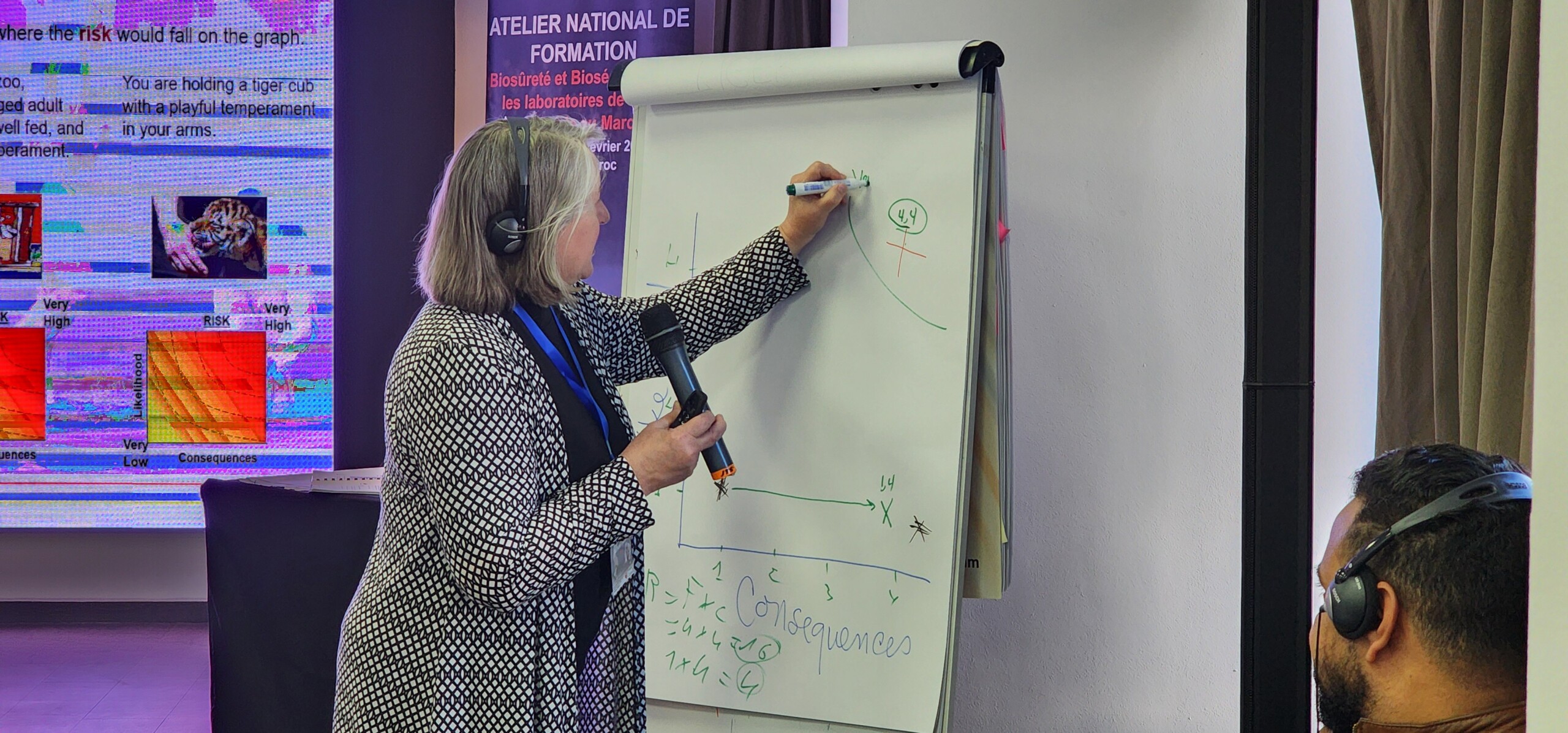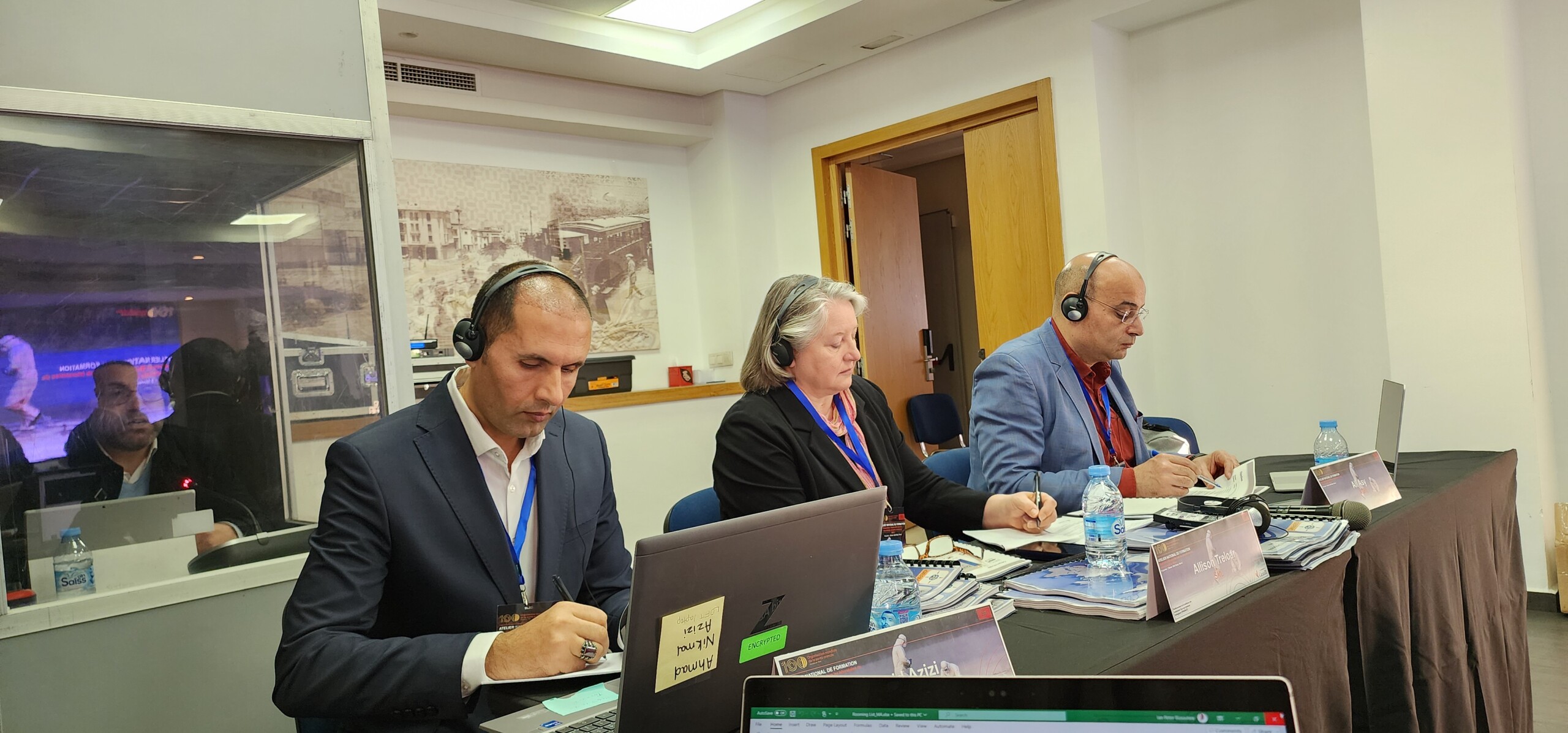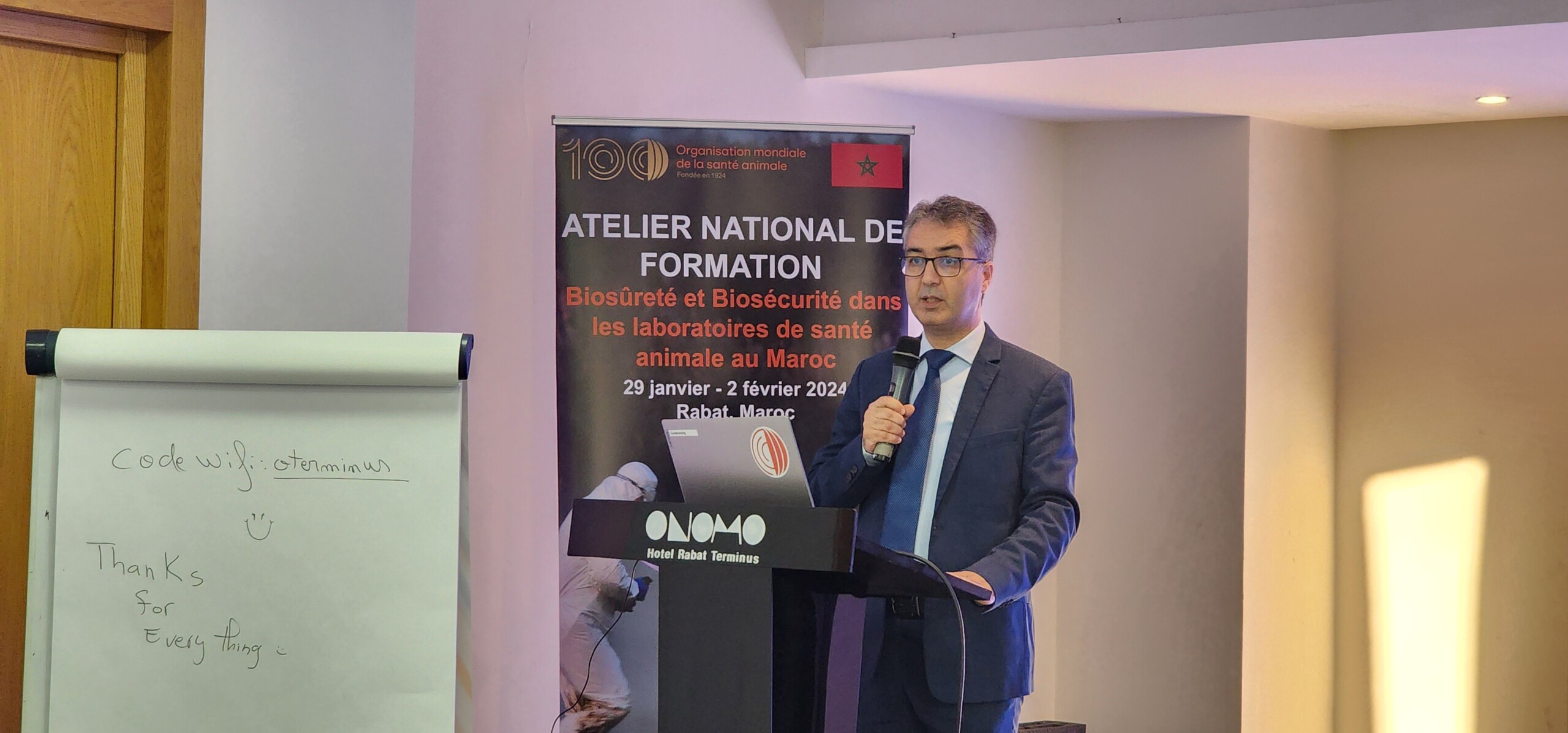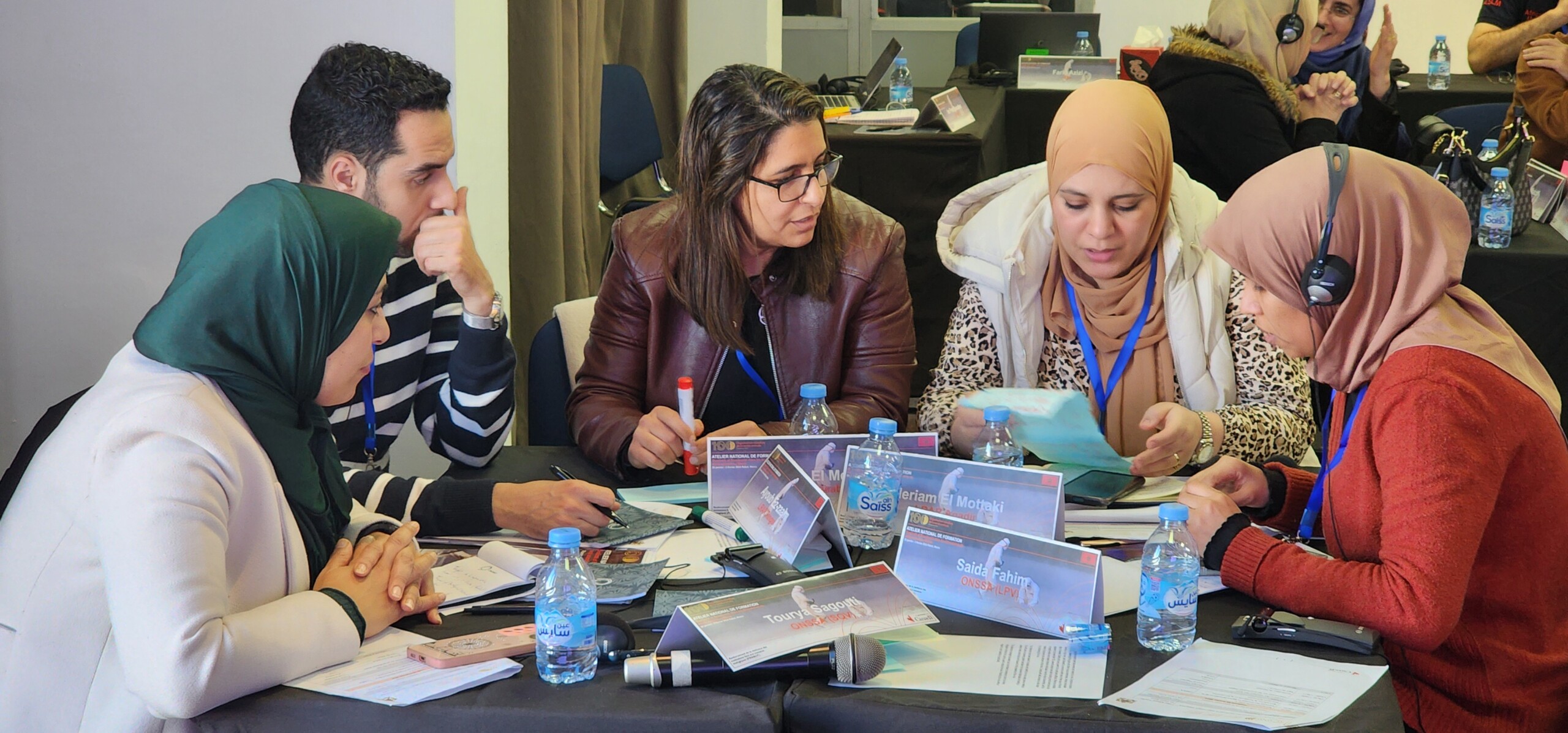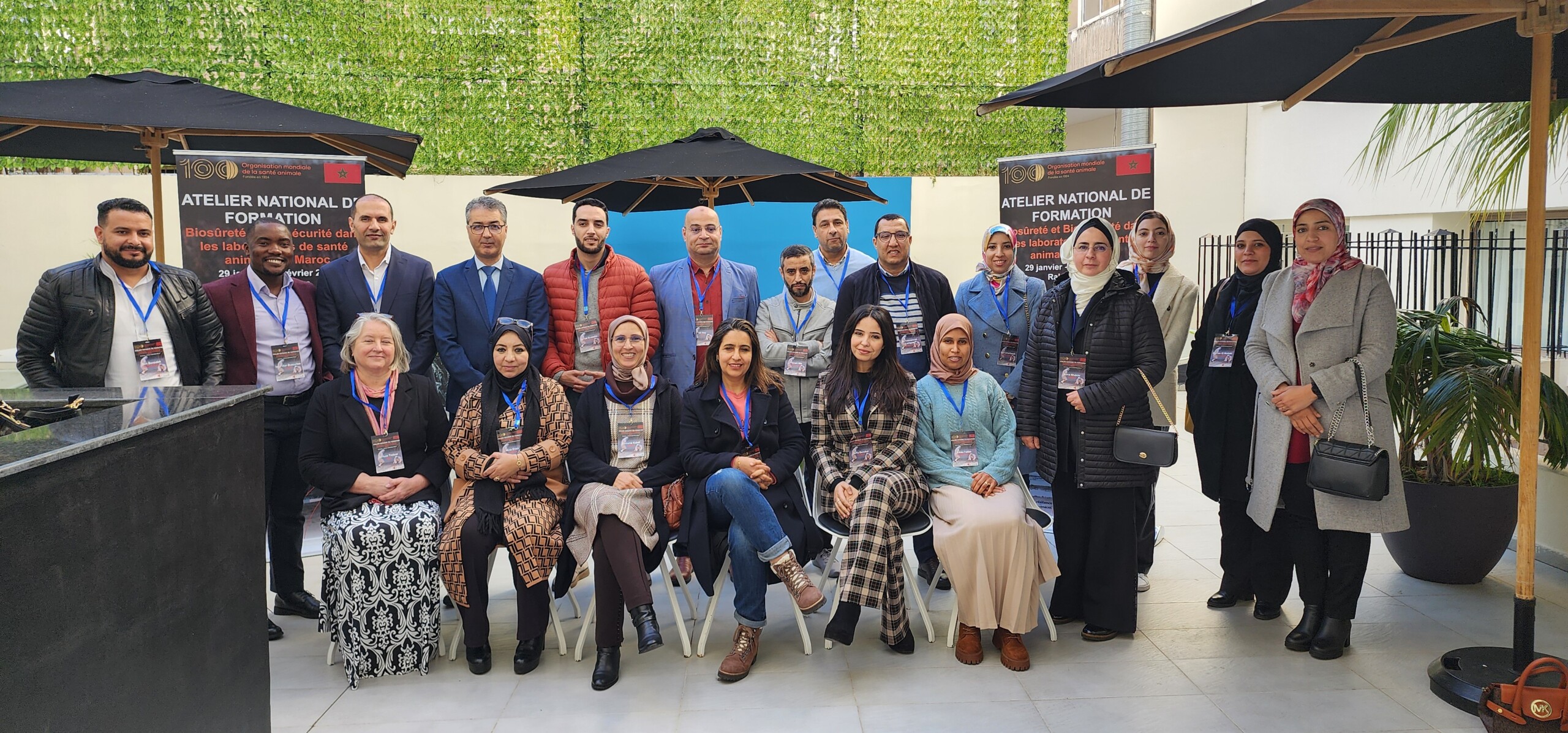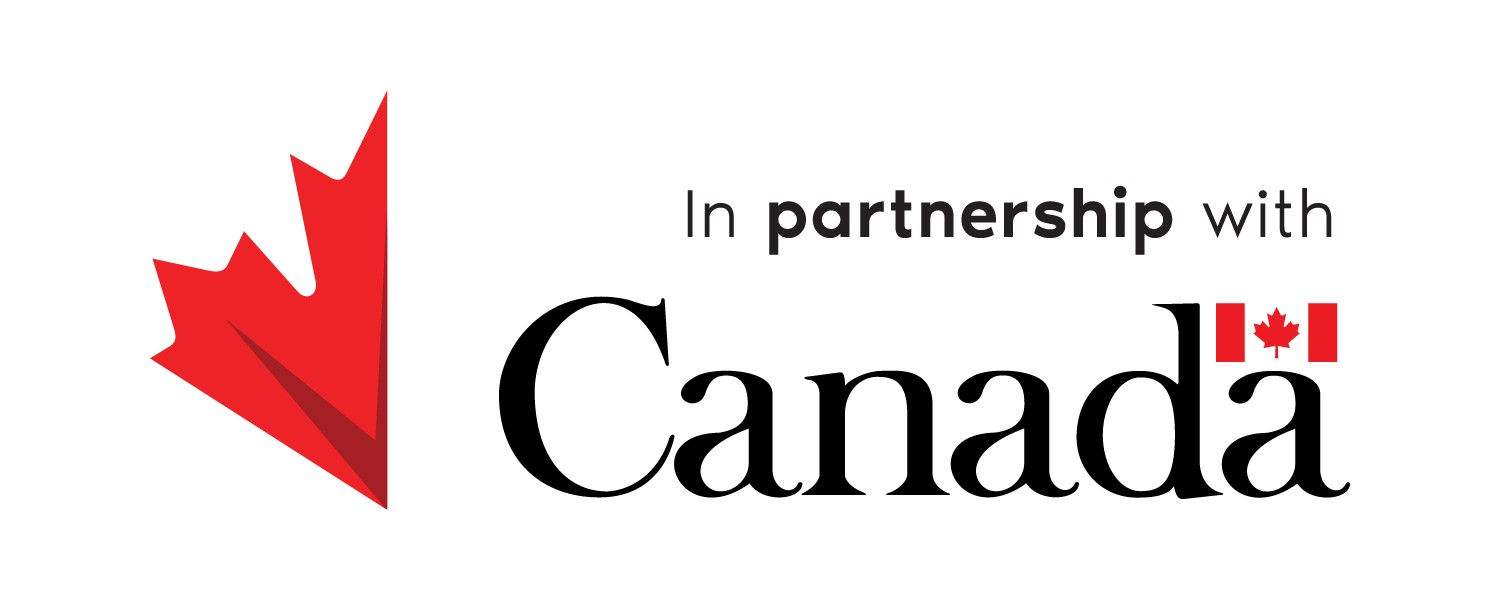
Celebrating 100 years of unwavering commitment to global animal health, WOAH recently conducted a training on biosafety and biosecurity in animal health laboratories, for Morocco’s Veterinary Services. The training, held in Rabat from January 29 to February 2, 2024, aimed to empower laboratory personnel with the knowledge, skills and abilities necessary for the effective assessment and management of biological risks.
In response to escalating global threats posed by recurring epidemics, new diseases, and bioterrorism, there is a pressing need to enhance capacities to address these challenges. While advancements in bioscience research and biotechnology are crucial for developing intervention strategies against emerging diseases and improving food security, they also come with inherent biological risks, be they accidental, natural, or deliberate. Compounding these concerns is the constant exposure of laboratory personnel to biological agents, necessitating the implementation of robust biosafety and biosecurity practices to protect both individuals and the broader community.
Left to Right: Dr Farid Azizi and Mrs Allison Treolar from Sandia National Laboratories (US), and Prof. Ali Asy from the Animal Health Research Institute (Egypt). Picture © I. Busuulwa (woah) 2024
The biosafety and biosecurity training targeted laboratory personnel from the national and regional research laboratories under Morocco’s National Office of Food Safety / l’Office National de Sécurité Sanitaire des Produits Alimentaires (ONSSA). The facilitators were experts from Sandia National Laboratories (US-based WOAH Collaborating Centre for laboratory biorisk management) and Egypt’s Animal Health Research Institute (WOAH Reference Laboratory for avian influenza and brucellosis).
The workshop was officially opened by Dr. Nabil Abouchoaib – the Director of Inputs and Laboratories at ONSSA. In his opening remarks, he thanked WOAH for mobilising the requested experts and the Canadian government for financially supporting the training. He further highlighted that building capacity in biosafety and biosecurity was at the heart of ONSSA’s 2021-2025 roadmap and thus encouraged the participants to take advantage of the training opportunity facilitated by global subject matter experts on biorisk management.
Throughout the training, participants delved into various components of a biorisk management system, including biorisk assessment, mitigation, and performance evaluation.
Dr. Nabil Abouchoaib – the Director of Inputs and Laboratories at ONSSA delivering his opening remarks. Picture © I. Busuulwa (woah) 2024
Participants engaging in a group exercise. Picture © I. Busuulwa (woah) 2024
Dr. Mina Ettair, Head of the Laboratory Division at ONSSA, conveyed the participants’ appreciation to WOAH and Global Affairs Canada for organising the training. She highlighted that the training would allow them to review and update their relevant biorisk management documents thereby improving biosafety and biosecurity practices in the laboratories.
The biosafety and biosecurity training is one of Morocco’s activities as a participant of the Fortifying Institutional Resilience against Biological Threats (FIRABioT) Project that is funded by Global Affairs Canada’s Weapons Threat Reduction Programme. This supports the Global Partnership Signature Initiative to Mitigate Biological Threats in Africa.
